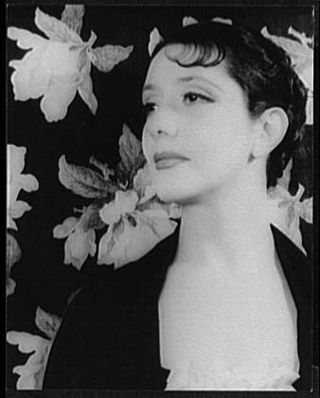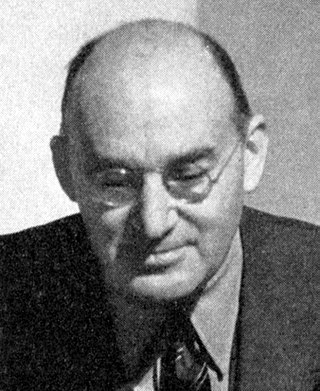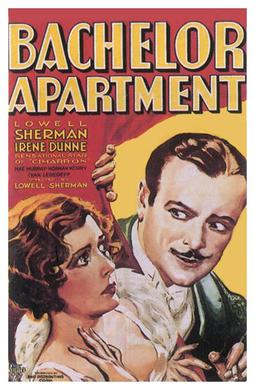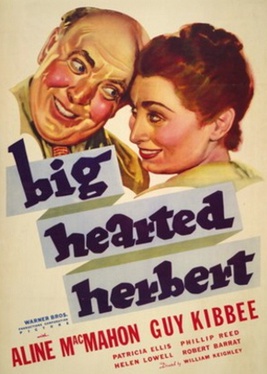
Alfred David Lunt was an American actor and director, best known for his long stage partnership with his wife, Lynn Fontanne, from the 1920s to 1960, co-starring in Broadway and West End productions. After their marriage, they nearly always appeared together. They became known as "the Lunts" and were celebrated on both sides of the Atlantic.

The Guardsman is a 1931 American pre-Code film based on the play Testőr by Ferenc Molnár. It stars Alfred Lunt, Lynn Fontanne, Roland Young and ZaSu Pitts. It opens with a stage re-enactment of the final scene of Maxwell Anderson's Elizabeth the Queen, with Fontanne as Elizabeth and Lunt as the Earl of Essex, but otherwise has nothing to do with that play.

Lynn Fontanne was an English actress. After early success in supporting roles in the West End, she met the American actor Alfred Lunt, whom she married in 1922 and with whom she co-starred in Broadway and West End productions over the next four decades. They became known as "The Lunts", and were celebrated on both sides of the Atlantic.

Design for Living is a comedy play written by Noël Coward in 1932. It concerns a trio of artistic characters, Gilda, Otto and Leo, and their complicated three-way relationship. Originally written to star Lynn Fontanne, Alfred Lunt and Coward, it was premiered on Broadway, partly because its risqué subject matter was thought unacceptable to the official censor in London. It was not until 1939 that a London production was presented.

Walking Happy is a musical with music by Jimmy Van Heusen, lyrics by Sammy Cahn and book by Roger O. Hirson and Ketti Frings. The story is based on the 1916 play Hobson's Choice by Harold Brighouse. The musical was nominated for six Tony Awards, including Best Musical.
Carolyn Inez McCormick is an American actress who played Dr. Elizabeth Olivet in the Law & Order franchise.

Bonnie Bartlett Daniels is an American actress. Her career spans seven decades, with her first major role being on a 1950s daytime drama, Love of Life. Bartlett is known for her role as Grace Snider Edwards on the Michael Landon television series Little House on the Prairie and as Ellen Craig on the medical drama series St. Elsewhere. Her husband, actor William Daniels, played her fictional husband Dr. Mark Craig, and they both won Emmy Awards on the same night in 1986—becoming the first married couple to accomplish the feat since Alfred Lunt and Lynn Fontanne in 1965.

Joyce Carey, OBE was an English actress, best known for her long professional and personal relationship with Noël Coward. Her stage career lasted from 1916 until 1987, and she was performing on television in her 90s. Although never a star, she was a familiar face both on stage and screen. In addition to light comedy, she had a large repertory of Shakespearean roles.

Samuel Nathaniel Behrman was an American playwright, screenwriter, biographer, and longtime writer for The New Yorker. His son is the composer David Behrman.

Dinner at Eight is a 1933 American pre-Code comedy-drama film directed by George Cukor from a screenplay by Frances Marion and Herman J. Mankiewicz, based on George S. Kaufman and Edna Ferber's 1932 play of the same title. The film features an ensemble cast of Marie Dressler, John Barrymore, Wallace Beery, Jean Harlow, Lionel Barrymore, Lee Tracy, Edmund Lowe, and Billie Burke.

A Damsel in Distress is a novel by P. G. Wodehouse, first published in the United States on 4 October 1919 by George H. Doran, New York, and in the United Kingdom by Herbert Jenkins, London, on 15 October 1919. It had previously been serialised in The Saturday Evening Post, between May and June of that year.

Fay Kanin was an American screenwriter, playwright and producer. Kanin was president of the Academy of Motion Picture Arts and Sciences from 1979 to 1983.

Titanic is a musical with music and lyrics by Maury Yeston and a book by Peter Stone. It is based on the story of the RMS Titanic which sank on its maiden voyage on April 15, 1912.

Daddy's Gone A-Hunting is a 1925 American silent drama film directed by Frank Borzage based upon a play by Zoë Akins, with adaptation by Kenneth B. Clarke. The film brought together Vitagraph leading lady Alice Joyce and English actor Percy Marmont after his success with If Winter Comes. This is the only film either of the main stars made for MGM. The film was remade in 1931 as Women Love Once. A print survives in the Národní filmový archiv.

Bachelor Apartment is a 1931 American pre-Code romance film directed by and starring Lowell Sherman as a bachelor/playboy, Wayne Carter, who falls in love with Irene Dunne's honest working girl, Helene Andrews. The credits for the film, and all sources from that time show that the film was based on a story by New York playwright John Howard Lawson, the screenplay was adapted by J. Walter Ruben. However, Lawson would later claim that the final screenplay had not been altered from what he had originally written. The cast features Mae Murray, Norman Kerry and Ivan Lebedeff.

Effie Shannon was an American stage and silent screen actress.

The Royal Bed is a 1931 American pre-Code satirical comedy film produced by William LeBaron and distributed through RKO. The film was directed by and starred Lowell Sherman, along with Mary Astor and Anthony Bushell. The screenplay was adapted by J. Walter Ruben based on the 1928 play by Robert E. Sherwood titled The Queen's Husband. It would be one of a handful of RKO pictures which was produced in both English and French language versions.

Second Youth is a 1924 American silent romantic comedy film produced by Distinctive Pictures and distributed through Goldwyn Pictures. The film is one of the few and rare silent appearances of Broadway husband and wife team Alfred Lunt and Lynn Fontanne.

Big Hearted Herbert is a 1934 domestic comedy film starring Aline MacMahon and Guy Kibbee as a middle-aged couple. It is based on the Broadway play of the same name by Sophie Kerr and Anna Steese Richardson, which was in turn based on the short story "Chin-Chin" by Kerr. It was remade in 1940 as Father Is a Prince.

Headlines is a 1925 American silent adventure and crime drama film directed by Edward H. Griffith and starring Alice Joyce and Malcolm McGregor. It was distributed through Pathé Exchange.



















